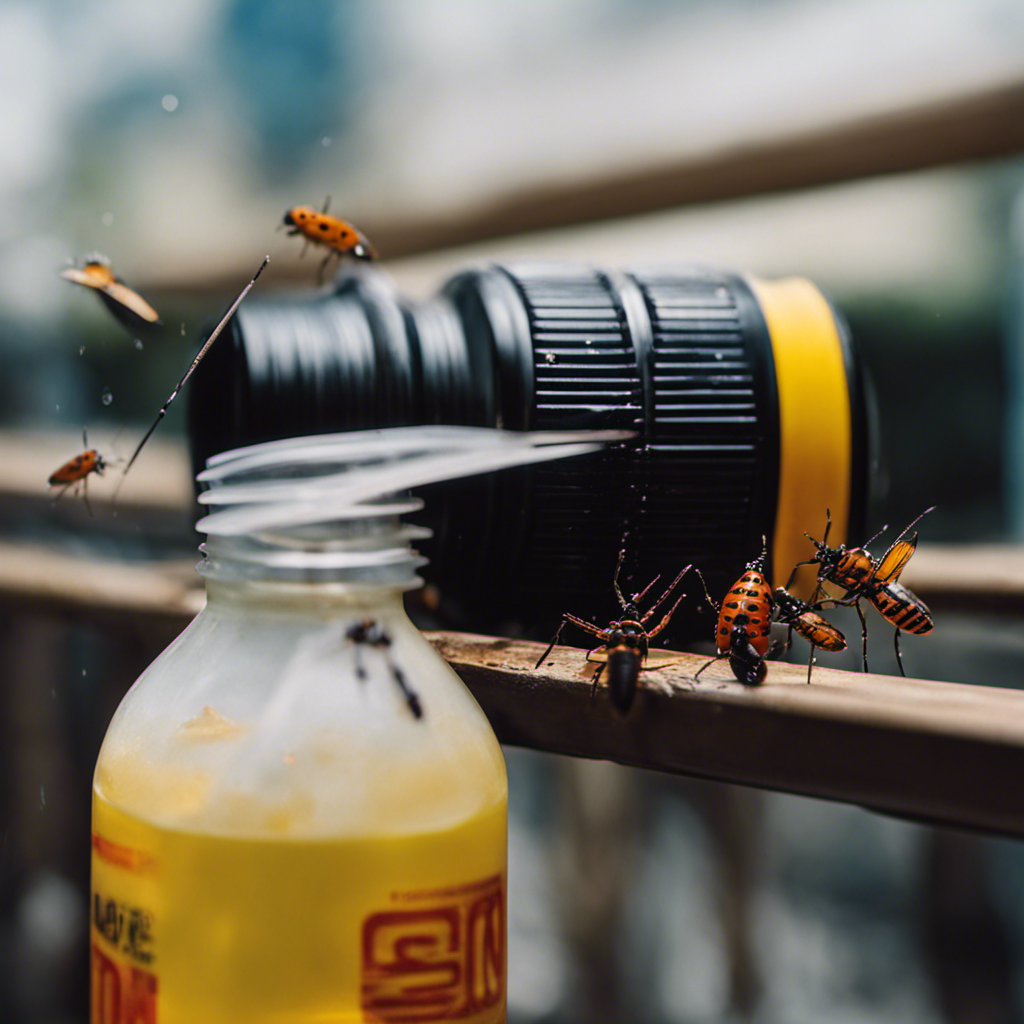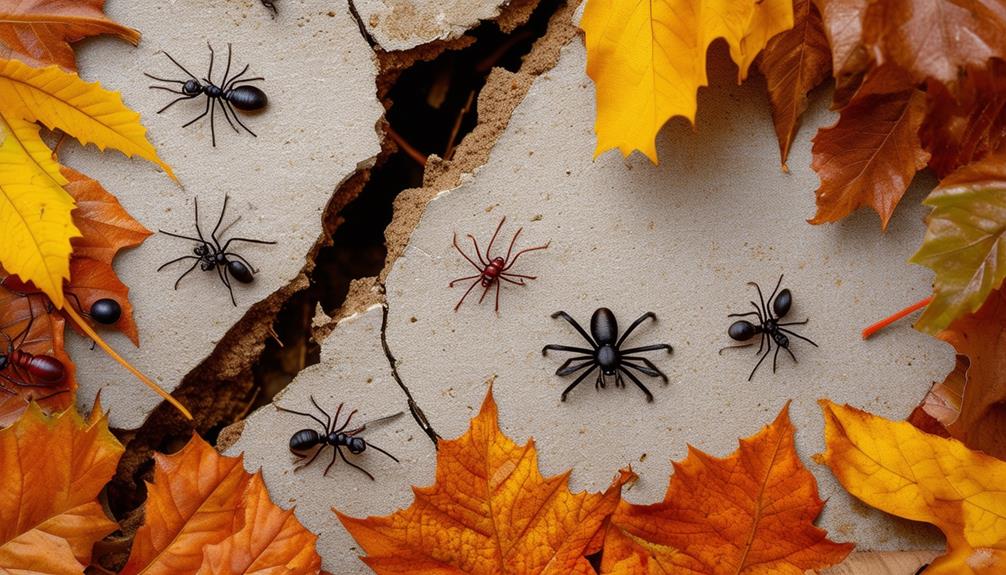In this comprehensive examination, we explore the efficacy of bleach in repelling bugs, identifying what species are most affected.
We delve into the impact on bug infestations and discuss the safety implications of using bleach.
Additionally, we consider alternative bug deterrent methods.
This article seeks to equip readers with knowledge to make informed decisions in maintaining bug-free spaces, ensuring the health and safety of those they serve.
Key Takeaways
- Bleach has disinfectant properties and its strong odor and chemical makeup can act as a deterrent to bugs.
- Bleach toxicity impacts ants, roaches, and mosquitos, but some bugs may develop bleach resistance over time.
- Bleach can contribute to bug resistance and excessive use can contaminate water and soil, so long-term implications on the environment should be considered.
- Bleach usage poses safety concerns such as skin and eye irritation, respiratory problems, and digestive system damage, so proper handling and protective gear are essential.
Understanding the Bleach-Bug Relationship
A considerable number of individuals frequently question the effectiveness of bleach in repelling various types of insects, necessitating a comprehensive understanding of the bleach-bug relationship.
Bleach is composed of a solution of sodium hypochlorite dissolved in water, which is known to have powerful disinfectant properties. However, its influence on bug behavior is not as straightforward.
Bugs, especially roaches and ants, are drawn to sources of water and food, and are deterred by harsh, chemically potent environments. Bleach’s strong odor and chemical makeup can act as a deterrent, but it does not inherently kill or repel insects.
Its primary role in bug control is its ability to sanitize surfaces and eliminate attractants, thus indirectly discouraging insect infestation.
Types of Bugs Affected by Bleach
Wherein lies the efficacy of bleach in influencing the behavior of different types of bugs?
Bleach toxicity levels have been found to impact a wide range of bugs, including ants, roaches, and mosquitos, leading to a reduction in their population.
The strong smell of bleach can also act as a deterrent, discouraging bugs from infesting certain areas.
However, it’s crucial to note that some bugs may develop bleach resistance over time. This bug resistance development is a natural evolutionary response and can reduce the effectiveness of bleach as a bug deterrent.
Therefore, while bleach may be effective in controlling certain bug populations, it should not be considered a comprehensive solution.
How Bleach Impacts Bug Infestations
One must consider the multifaceted impacts of bleach on bug infestations, which extend beyond simple deterrence or extermination. The use of bleach as an insecticide could inadvertently contribute to the development of bug’s resistance, escalating the problem rather than solving it. Prolonged exposure to bleach may lead insects to evolve and develop resistance to its toxic effects, thereby increasing their resilience and population over time.
Moreover, the environmental impact of bleach cannot be overlooked. The excessive use of bleach can contaminate water sources and soil, affecting the ecosystem’s overall health. While it may offer a temporary solution to bug infestations, its long term implications on the environment and potential contribution to bug resistance development warrant careful consideration.
Safety Concerns With Bleach Usage
In light of bleach’s potential implications, it’s crucial to discuss the safety concerns associated with its usage. Bleach toxicity is a significant issue, with potential health risks such as skin and eye irritation, respiratory problems, and even damage to the digestive system if ingested. For those aiming to serve others through pest control, understanding these risks is vital.
Safe handling of bleach, therefore, is paramount. Protective gear, including gloves and eye protection, should be worn. Additionally, bleach should never be mixed with other chemicals, particularly ammonia, as this can lead to the release of harmful gases.
Lastly, ensure proper ventilation while using bleach to minimize inhalation exposure. Your safety and the safety of those you serve should always be a top priority.
Alternatives to Using Bleach
Despite the potential use of bleach for pest control, due to its associated health risks, it is beneficial to consider alternatives that offer a safer approach to bug deterrence.
Natural repellents and non-toxic pest control methods have been growing in popularity due to their efficacy and safety. Essential oils such as citronella, peppermint, and tea tree oil have been found to be effective in repelling a wide range of pests.
Diatomaceous earth, a natural silica-based powder, is another safe and effective solution for many bugs. Moreover, various companies offer eco-friendly pest control services utilizing methods that are harmless to humans and pets.





